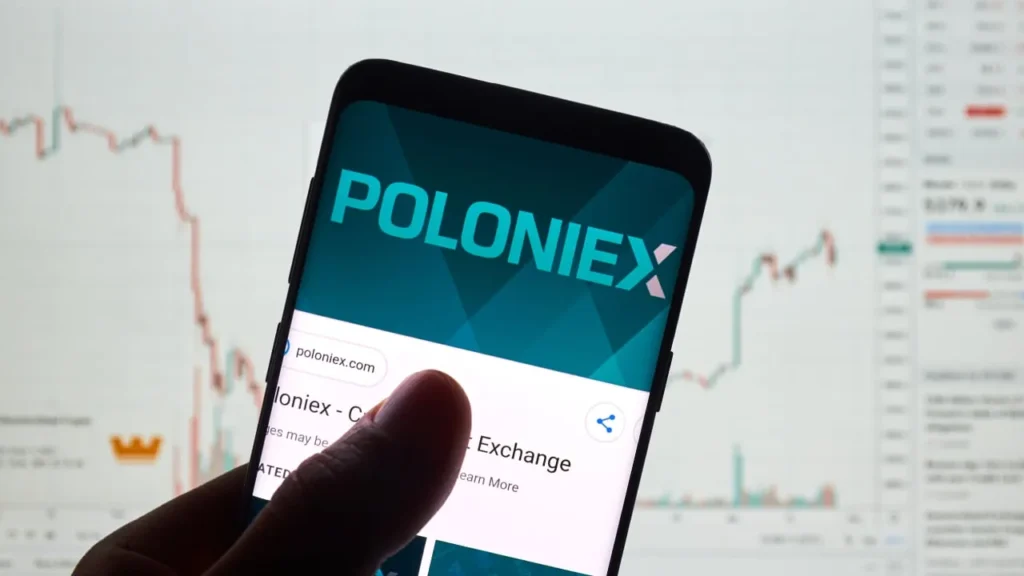- HTX crypto exchange and blockchain protocol, Heco Chain, experienced another crypto hack, further damaging the organization’s reputation.
- The first attack occurred on September 24th, shortly after Huobi rebranded to HTX.
- On November 24th, the HTX crypto exchange and Heco Chain were targeted, resulting in a $30 million loss.
The crypto industry is a trillion-dollar franchise that has revolutionized the financial industry. This ecosystem has highlighted the significance of decentralized finance and digital money. Since 2009, the crypto industry has transitioned through several industries, and it is currently the pioneer of Web3. Unfortunately, despite its lucrative allure, the industry has numerous issues like volatility, centralization, and vague regulatory frameworks.
However, crypto hacks remain among the main issues surrounding the industry. This consistent battle between security experts and hackers has caused the industry to lose more than billions of dollars. It shattered the very faith we all had in the innate security system within blockchain technology.
Today, crypto hacks are expected to occur. Thus, many organizations and trades have adopted unique ways to deal with this growing issue. Unfortunately, this consistent battle will only continue as the concept of digital currency exists.
In recent developments, crypto exchange HTX and blockchain protocol Heco Chain were victims of another crypto hack, totaling losses to $115 million in cryptocurrency. In a surprising twist of events, according to investigators, Justin Sun, a high-profile digital entrepreneur, is linked to both incidents, raising a few questions.
HTX crypto exchange and Heco Chain join the list of hacked exchanges
Many crypto-enthusiasts, developers, innovators, and traders initially perceived blockchain’s inherent ability to maintain integrity as a unique attribute. Its innate security measures led many investors and innovators to construct organizations dedicated to ensuring the widespread adoption of blockchain technology. Unfortunately, we received a rude awakening to the reality of technology and its never-ending pursuit of perfection.
The MT Gox hack was the first of many crypto hacks to shake the entire industry. It became painfully clear that besides blockchain’s ability to maintain transparency, we still knew little of its working, giving hackers a leeway to exploit. Since that incident, blockchain security has emerged and has endured several losses and wins. However, the rate of crypto hacks only seems to increase as we progress through this transitioning phase.
In recent news, HTX crypto exchange and blockchain protocol, Heco Chain, experienced another crypto hack, further damaging the organization’s reputation.
The Thread of Crypto hacks
According to investigators, the previous crypto hack only fired a rumored supposition of a more significant orchestrated attack against the HTX Eco (Heco) chain bridge. This was the first attack, causing a loss of over $30 million in crypto, forcing the organization to alter all its deposits and withdraw the service system again.
The first attack occurred on September 24th, shortly after Huobi rebranded to HTX. During the ceremonial transition, the attacker took advantage of the commotion to inflate their hot wallet and siphoned at least $8 million in cryptocurrency. Fortunately, Justin Sun, CEO of HTX exchange, took charge of the commotion and reimbursed the stolen funds.
He commented, “$8 million represents a relatively small sum in comparison to the $3 billion worth of assets held by our users. It also amounts to just two weeks’ revenue for the HTX platform. As a result, all funds are secure, and trading operations have continued as usual. We promptly addressed and resolved all issues, restoring the platform to its normal state without delay.”
Unfortunately, the attacker lurked behind the shadows and retook action on November 10th. This time, the attacker aimed at Sun-owned crypto exchange Poloniex, stealing $114 million worth of tokens. The investigation revealed that the hacker exploited their hot wallets and siphoned the funds via 357 transactions.

On November 10th, Poloniex exchange, another of Justin Sun’s corporations, suffered a crypto hack resulting in the loss of at least $100 million.[Photo/Decrypt]
The crypto hack also involved a Tron blockchain ecosystem, revealing that the hacker had sent $42 million across various wallets. After this incident, many questions surfaced over the kind of security systems Justin Sun incorporates within his exchanges. In less than three months, his organization has come under fire, highlighting the possibility of utilizing a blockchain system similar to the HTX crypto exchange.
Also, Read August crypto hacks reveal a new vulnerability in the Web3 ecosystem.
In his defense, Justin tweeted, “We are investigating the Poloniex hack incident. Poloniex maintains a healthy financial position and will fully reimburse the affected funds. Additionally, we are exploring opportunities for collaboration with other exchanges to facilitate the recovery of these funds.”
Finally, the recent crypto hack that placed the cherry on top of this problem occurred days after the November 10th incident. On November 24th, the HTX crypto exchange and Heco Chain were targeted, resulting in a $30 million loss. This final attack proved that someone purposefully targeted Justin Sun’s exchange. What became more intriguing was the inability of the digital entrepreneur to bolster his blockchain security to curb any more losses.
The scrutiny of Justin Sun’s security measures
In less than a year, Justin Sun has lost an accumulative total of $115 million. It’s a negligible amount when comparing this figure to previous crypto hacks in 2023. However, the consistency in these attacks highlights that there is more than the eye meets. Investigators have claimed that the HTX crypto exchange and the Heco Chain bridge are under attack and possibly the same perpetrator.
In an official notice, Sun said, “HTX is identifying the source of the attack and has implemented urgent measures to protect user assets.”
To protect user assets and concentrate on identifying the vulnerability and perpetrator, the crypto exchange and blockchain protocol have suspended deposit and withdrawal services. The preventive measures will explain how the instigator has consistently bypassed its blockchain security. On the issue of the lost assets, the company has said it will fully compensate for the losses incurred due to the hot wallet attacks. According to CryptoQuant Data, around 11,100 ether tokens were moved from the HTX exchange in the most recent attack. Despite this, many still question the role Justin Sun has in making mends after this incident.
The recurring nature of the attack has highlighted the incompetence of the security measures in both organizations. Furthermore, after the initial attacks, many traders and clients expect the organizations to safeguard every affiliate program or partner exchange involved. The decreased number of crypto hacks only showcases how Justin has mildly improved the security system of his organization, causing many to distract from the normal functioning of the blockchain protocol.
Unfortunately, this recent loss has significantly damaged the reputation of the HTX crypto exchange and Heco Chain. There is a high possibility users will withdraw their assets to protect against any potential attack in the future. This may cause a chain reaction within the crypto exchange, eventually forcing a liquidity crisis.
Also, Read A deeper look into crypto hacks: how they work and relate.
If Justin Sun cannot provide additional proof of securing user funds, he may face a fate similar to that of FTX. Many may forgo this iron-clad rule, but its legitimacy still holds weight; trust is the very foundation of cryptocurrency. The downward spiral is often instantaneous if an organization cannot reassure users that their funds are safe, secure, and available.
Will the HTX crypto exchange survive this? Or will it join the long ranks of failed crypto exchanges?
- SEO Powered Content & PR Distribution. Get Amplified Today.
- PlatoData.Network Vertical Generative Ai. Empower Yourself. Access Here.
- PlatoAiStream. Web3 Intelligence. Knowledge Amplified. Access Here.
- PlatoESG. Carbon, CleanTech, Energy, Environment, Solar, Waste Management. Access Here.
- PlatoHealth. Biotech and Clinical Trials Intelligence. Access Here.
- Source: https://web3africa.news/2023/11/30/news/htx-crypto-exchange-heco-chain/
- :has
- :is
- $100 million
- $3
- 100
- 10th
- 11
- 24th
- 36
- a
- ability
- According
- across
- Action
- Additional
- Additionally
- addressed
- adopted
- Adoption
- ADvantage
- affected
- Affiliate
- Affiliate Program
- After
- again
- against
- aimed
- All
- allure
- also
- among
- amount
- amounts
- an
- and
- Another
- any
- ARE
- around
- AS
- Assets
- At
- attack
- Attacks
- available
- Battle
- became
- behind
- besides
- between
- Billion
- billions
- binance
- blockchain
- blockchain ecosystem
- Blockchain security
- blockchain system
- blockchain technology
- bolster
- both
- BRIDGE
- but
- by
- cannot
- Cause
- caused
- causing
- Centralization
- ceo
- chain
- charge
- claimed
- clear
- clients
- collaboration
- come
- commented
- commotion
- company
- comparing
- comparison
- concentrate
- concept
- consistent
- consistently
- construct
- continue
- continued
- Corporations
- crisis
- crypto
- crypto exchange
- Crypto Exchanges
- Crypto Hack
- crypto hacks
- Crypto Industry
- cryptocurrency
- curb
- Currency
- Currently
- damaging
- Days
- deal
- decentralized
- Decentralized Finance
- decreased
- dedicated
- deeper
- Defense
- deposit
- deposits
- Despite
- developers
- developments
- digital
- digital currency
- Digital Money
- dollars
- downward
- due
- during
- ecosystem
- emerged
- ensuring
- Entire
- Entrepreneur
- Ether
- events
- eventually
- Every
- exchange
- Exchanges
- exists
- expect
- expected
- experienced
- experts
- Explain
- Exploit
- exploited
- Exploring
- eye
- Face
- facilitate
- Failed
- faith
- fate
- few
- Figure
- final
- finance
- financial
- Fire
- fired
- First
- For
- forcing
- Fortunately
- Foundation
- frameworks
- franchise
- from
- FTX
- fully
- functioning
- funds
- further
- Furthermore
- future
- Giving
- Gox
- Growing
- hack
- hacked
- hacker
- hackers
- hacks
- had
- Have
- he
- healthy
- Held
- High
- high-profile
- Highlighted
- highlighting
- highlights
- his
- holds
- HOT
- Hot wallet
- How
- However
- HTTPS
- Huobi
- identifying
- if
- implemented
- improved
- in
- inability
- incident
- incompetence
- incorporates
- Increase
- incurred
- industries
- industry
- inherent
- initial
- initially
- innate
- innovators
- integrity
- into
- intriguing
- investigating
- investigation
- Investigators
- Investors
- involved
- issue
- issues
- IT
- ITS
- join
- just
- Justin
- Justin Sun
- Kind
- least
- Led
- legitimacy
- less
- like
- linked
- Liquidity
- List
- little
- Long
- Look
- lose
- loss
- losses
- lost
- lucrative
- Main
- maintain
- maintains
- Making
- many
- max-width
- May..
- measures
- Meets
- million
- money
- months
- more
- most
- moved
- MT
- Nature
- New
- news
- normal
- Notice..
- November
- number
- numerous
- occurred
- of
- official
- often
- on
- only
- Operations
- opportunities
- or
- orchestrated
- organization
- organizations
- Other
- our
- over
- partner
- perceived
- perfection
- phase
- pioneer
- platform
- plato
- Plato Data Intelligence
- PlatoData
- poloniex
- position
- possibility
- possibly
- potential
- previous
- Problem
- Program
- Progress
- proof
- protect
- protocol
- proved
- provide
- pursuit
- question
- Questions
- raising
- ranks
- Rate
- reaction
- Reality
- reassure
- rebranded
- received
- recent
- recovery
- recurring
- regulatory
- relatively
- remain
- represents
- reputation
- resolved
- restoring
- result
- resulting
- reveal
- Revealed
- revealing
- revenue
- revolutionized
- Role
- Rule
- safe
- Said
- same
- scrutiny
- secure
- securing
- security
- Security Measures
- seems
- sent
- September
- service
- Services
- several
- Shortly
- significance
- significant
- significantly
- similar
- since
- small
- Someone
- Source
- State
- Still
- stolen
- stolen funds
- suffered
- Sun
- surprising
- Surrounding
- survive
- suspended
- system
- Systems
- targeted
- Technology
- than
- that
- The
- The Future
- The Source
- their
- There.
- These
- they
- this
- three
- Through
- Thus
- time
- to
- Tokens
- took
- top
- Total
- Traders
- trades
- Trading
- Transactions
- transition
- transitioned
- transitioning
- Transparency
- TRON
- Tron Blockchain
- true
- Trust
- twist
- two
- under
- unfortunately
- unique
- urgent
- User
- user funds
- users
- usual
- Utilizing
- various
- very
- via
- victims
- Volatility
- vulnerability
- Wallet
- Wallets
- was
- ways
- we
- Web3
- webp
- weight
- were
- What
- when
- widespread
- will
- Wins
- with
- withdraw
- withdrawal
- within
- without
- Work
- working
- worth
- year
- zephyrnet













